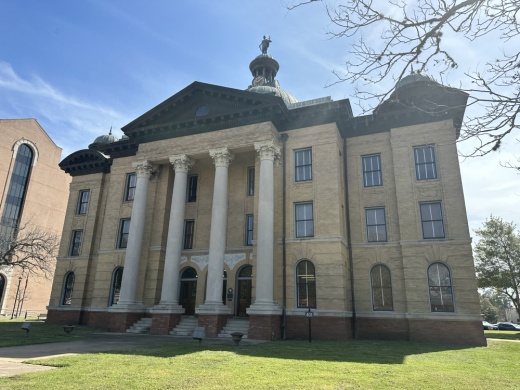Fort Bend County officials clashed over legal representation at the April 22 meeting as officials work to correct voter precincts ahead of the May compliance deadline.
This came after State Rep. Matt Morgan, R-Richmond, sent a letter to commissioners in February saying 37 of 174 of the county’s voter precincts during the November election didn’t meet state population requirements.
“To uphold the integrity of the electoral process and ensure compliance with state law, it is imperative that the Commissioners Court take immediate action to address these deficiencies,” he said in the letter.
What residents need to know
At the meeting, commissioners denied two contracts with legal offices to redraw the boundaries of voter precincts in the county.
- The first contract, totaling $30,000, was with The Law Offices of Tony McDonald. Precinct 3 Commissioner Andy Meyers proposed the contract, but commissioners denied it in a 2-3 vote, with commissioners Grady Prestage, Dexter McCoy and Vincent Morales dissenting.
- County Attorney Bridgette Smith-Lawson proposed the second contract with Brazil & Dunn LLP, which totaled $50,000 and didn’t receive support to go to a vote.
The code states counties should review precincts during March or April of each odd-numbered year, Morgan said in his letter. The last time the county redrew voter precincts was in 2021, adopting the new precinct maps Jan. 1, 2022.
By the numbers
April data from the county’s election administration office shows 38 of 174 voter precincts aren’t in compliance. Of those, 33 are over the 5,000-voter threshold—including precincts with as many as 19,433 registered voters.
Additionally, five precincts have less than the state-required minimum of 100 registered voters, including two with zero voters.The data showed the noncompliant voting precincts spanned the commissioner precincts with:
- 12 in Precinct 1
- Eight in Precinct 2
- Seven in Precinct 3
- 11 in Precinct 4
During the meeting, commissioners disagreed on whether to hire outside counsel to complete the redistricting process rather than using the county’s election administration office. Additionally, commissioners disagreed on who to hire.
Meyers said he has spoken with several attorneys, including The Law Offices of Tony McDonald, who allegedly said commissioners can choose outside attorneys to complete the redistricting process, although Smith-Lawson claimed she has sole authority to choose the county’s legal counsel.
Following the court’s lack of representation appointment, McCoy said he believes the court made the right decision of allowing the county election’s office to complete the redistricting process in-house without spending additional taxpayer money.
“Simply, this should never have been a partisan issue,” McCoy said in the emailed statement. “It is about being responsible stewards of taxpayer resources and not duplicating efforts for political maneuvering at our taxpayers’ expense."
Meyers didn’t respond to request for comment by press time.
Looking ahead
Fort Bend County Elections Administrator John Oldham said there is not a concrete timeline, although he does expect to provide a recommended map to Commissioner court before the end of June.
“This is not a redistricting process, we will only be making changes to the voting precinct lines to bring them below the 5,000 active voter limit,” he said in an email. “It will have absolutely no effect [on the voting process] in Fort Bend County as we have been a part of the countywide polling place program since 2015.”
The process will need to be completed by the first week of September when filing begins for party precinct chair positions to be elected in the March 2026 primary election.





